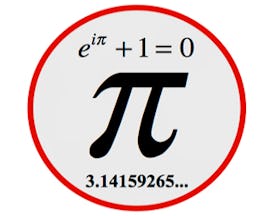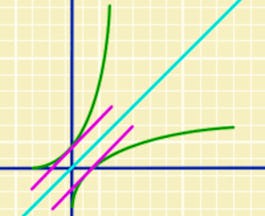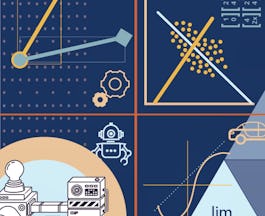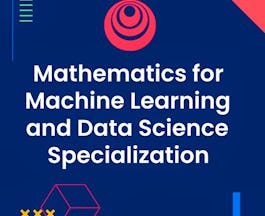Filter by
The language used throughout the course, in both instruction and assessments.
Results for "introduction+to+mathematical+thinking+stanford"
 Status: Free
Status: FreeStanford University
Skills you'll gain: General Statistics, Probability & Statistics, Statistical Analysis, Critical Thinking, Basic Descriptive Statistics, Data Analysis, Statistical Tests, Probability Distribution, Problem Solving, Statistical Visualization
 Status: Free
Status: FreeStanford University
Skills you'll gain: Critical Thinking, Mathematical Theory & Analysis, Mathematics, Problem Solving, Computational Logic, Algebra, Applied Mathematics, Data Analysis, Computational Thinking, Probability & Statistics
 Status: Free
Status: FreeThe University of Sydney
Skills you'll gain: Algebra, Calculus, Mathematical Theory & Analysis, Mathematics, Problem Solving, Computational Logic, Critical Thinking, Differential Equations, Plot (Graphics), Geometry

Imperial College London
Skills you'll gain: Algebra, Linear Algebra, Mathematics, Machine Learning, Mathematical Theory & Analysis, Computer Programming, Python Programming, Machine Learning Algorithms, Calculus, Computational Logic, Algorithms, Differential Equations, Applied Mathematics, Problem Solving, Statistical Analysis, Data Visualization, Dimensionality Reduction, Probability & Statistics, Regression

DeepLearning.AI
Skills you'll gain: Machine Learning, Calculus, Differential Equations, Mathematics, Machine Learning Algorithms, Regression, Algebra, Algorithms, Artificial Neural Networks, General Statistics, Linear Algebra, Probability & Statistics, Statistical Analysis
 Status: Free
Status: FreeUniversity of North Texas
Skills you'll gain: Algebra, Mathematics, Applied Mathematics, Linear Algebra, Problem Solving, Mathematical Theory & Analysis, Critical Thinking, Differential Equations, Geometry, Probability & Statistics, General Statistics

Stanford University
Skills you'll gain: Algorithms, Theoretical Computer Science, Computer Programming, Problem Solving, Graph Theory, Mathematics, Data Structures, Computational Thinking, Mathematical Theory & Analysis, Critical Thinking, Computational Logic, Programming Principles, Software Engineering
 Status: Free
Status: FreeStanford University
Skills you'll gain: Decision Making, Game Theory, General Statistics, Problem Solving, Critical Thinking, Mathematical Theory & Analysis

Johns Hopkins University
Skills you'll gain: Mathematics, Algebra, Problem Solving, Calculus, Critical Thinking, Mathematical Theory & Analysis, Linear Algebra, Plot (Graphics), Applied Mathematics, Data Model, Regression, Angular, Geometry, Data Analysis, Graph Theory

Johns Hopkins University
Skills you'll gain: Algebra, Mathematics, Problem Solving, Linear Algebra, Applied Mathematics, Critical Thinking, Plot (Graphics), Mathematical Theory & Analysis, Computational Thinking, Decision Making

Johns Hopkins University
Skills you'll gain: Mathematics, Calculus, Algebra, Mathematical Theory & Analysis, Differential Equations, Problem Solving, Linear Algebra

Imperial College London
Skills you'll gain: Algebra, Calculus, Linear Algebra, Mathematics, Differential Equations, Machine Learning, Machine Learning Algorithms, Mathematical Theory & Analysis, Computational Logic, Data Visualization, Regression
In summary, here are 10 of our most popular introduction+to+mathematical+thinking+stanford courses
- Introduction to Statistics: Stanford University
- Introduction to Mathematical Thinking: Stanford University
- Introduction to Calculus: The University of Sydney
- Mathematics for Machine Learning: Imperial College London
- Mathematics for Machine Learning and Data Science: DeepLearning.AI
- Math Prep: College & Work Ready: University of North Texas
- Algorithms: Stanford University
- Game Theory: Stanford University
- Precalculus through Data and Modelling: Johns Hopkins University
- Algebra: Elementary to Advanced: Johns Hopkins University










